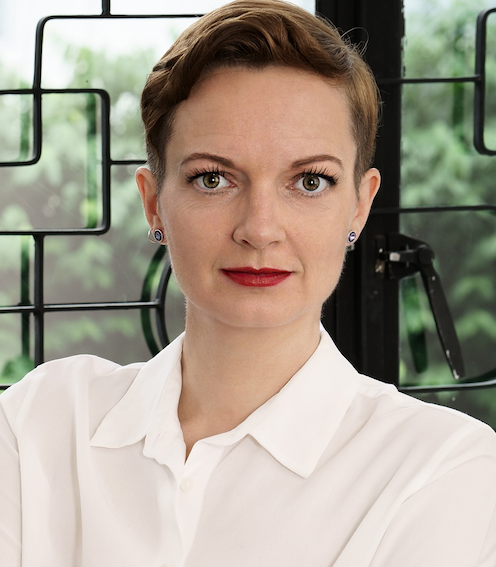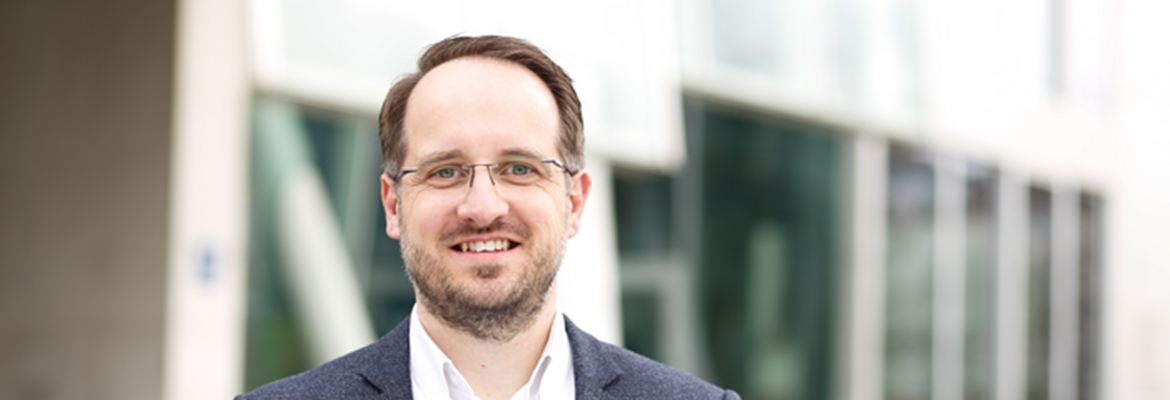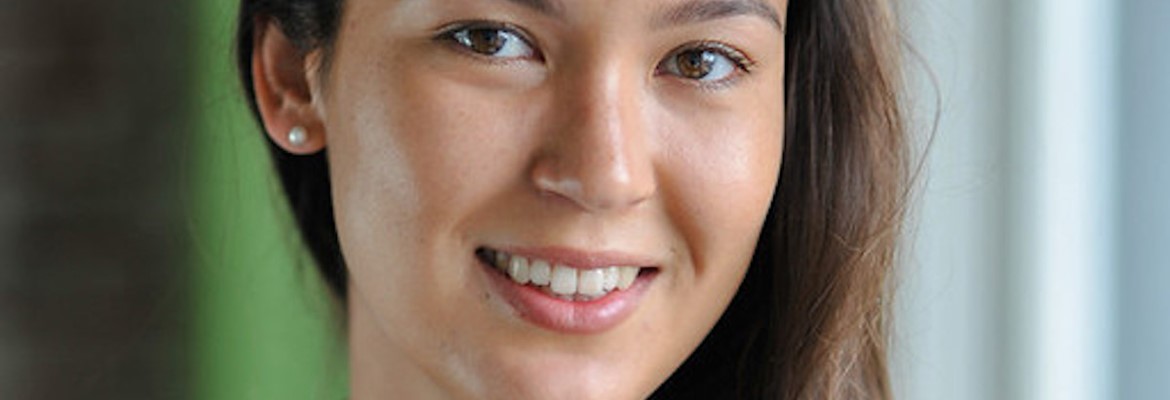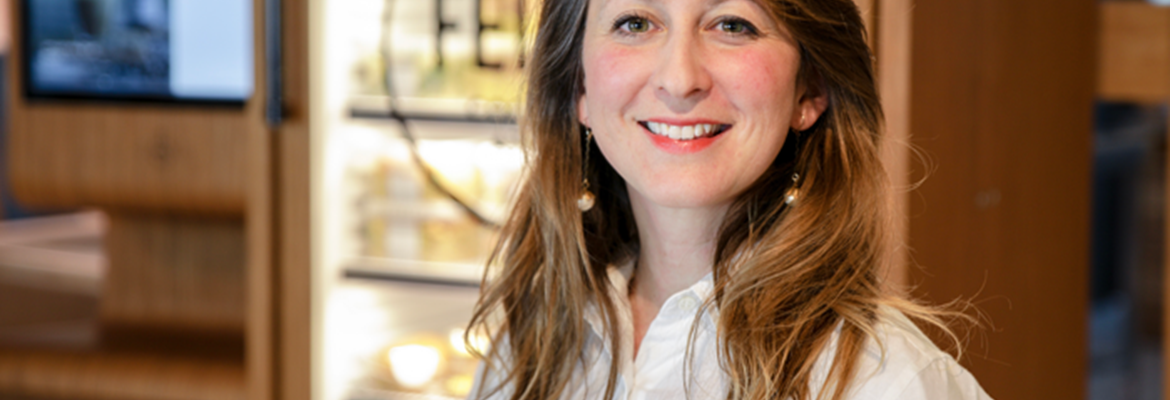The changes, chances and challenges of sustainability
Climate change, Greta, Fridays for Future – we are constantly surrounded by those words and events. But what does “Green Work” mean and how will it change our personal daily lives and careers in the future? We had the opportunity to speak to Dr. Judith Walls, Professor and Chair for Sustainability Management at the Institute for Economy and the Environment, University of St.Gallen (HSG).
Von: John Mhuka | Datum: 01. September 2020 | Lesedauer: 15 Min
What is meant by green work?
There is not really a standard or set definition. In the past, the term “green collar jobs”, like the standard blue collar or white collar, was used for people working in the agriculture sector. Nowadays, green collar refers to anybody that works in the sustainable world. This could include many things, from clean tech companies to renewable energies, but it could also mean people or companies that work in the sustainability department or have some kind of mandate in their job with regard to sustainability. I think it is a very broad definition.
Don’t you think that all the talk about sustain-ability and climate debates are just a trend?
Definitely not. The idea has bounced around since the 1970s. The problem is, the environmental damage we are causing is not temporary. We have climate change; the world’s global temperatures are rising. We have an increase in pollution especially in developing nations. We have problems with carbon cycles, we have huge issues with biodiversity. These are things we need to address and we need to do it urgently. All the movements are highlighting how important this is, especially for the younger generation. Someone born after 2012 has only ever known a world with climate change and that is something that affects them negatively.
“If a company does greenwash, they lose legitimacy which is risky for them.”
It is everywhere. Companies cannot get around the topic.
There is obviously a lot of talk about greenwashing, which means that companies say they will do one thing and in reality they are doing something else. But my feeling is that companies are doing more and more. It is an overwhelming issue to face. But once they have started, they are also held accountable by their stakeholders and staff. If a company does greenwash, they lose legitimacy which is risky for them.
How will this change affect us in our daily life?
We need to move towards a fully circular, green collar economy. We have no choice. We must adopt a more sustainable way of doing business and a sus-tainable way of life. And we have to do it fast. This is of course affecting the type of jobs that are available within companies and therefore also for people. We can also see that millennials want jobs with purpose and that includes environmental and social sustainability. In fact, they want this so much that they are willing to take a cut in salary – as long as they have a job with purpose.
But actually, pay cuts may not be necessary. Looking at statistics from the US, you will see that the median annual wage of a green job is actually higher than the median for all jobs generally. This I find interesting. I am no expert in this field, but what I suspect is that it has to do with the particular skills that are required for this field. It certainly changes how we train people, for example in business schools.
“… millennials want jobs with purpose and that includes environmental and social sustainability. In fact, they want this so much that they are willing to take a cut in salary – as long as they have a job with purpose.”
I would say here at the HSG, a big driver is still wanting to earn a lot of money and pursue a successful, well-paid career. Has the trend you just mentioned arrived at the HSG yet?
We have to take the background of the HSG into account. We are positioned purely as a business school, located in a conservative part of Switzerland. This might be a reason why it is taking a little bit longer for some of our students to take an interest in this issue. The good news is that at the HSG we have ten student-driven organizations that focus on sustainability. There is a lot of general interest, but we can still do more, especially when it comes to teaching. The university also signed the UN Climate Emergency letter in 2019. One goal of this initiative is to integrate sustainability across the curriculum. That means students will start to become more exposed to the topic.
As a student, why should I take a course in sustainability?
The students who have a bit more foresight of where the world is going in the next few years would see a reason why. Mark Carney, former governor of the Bank of England, recently stated that the transformation to corporate sustainability must involve the financial industry. In fact, it plays a hugely critical role. Companies that are not addressing climate change will eventually lose market value. It is already happening and companies that are less active when it comes to sustainability are valued lower. Actually, I think firms in the financial sector are especially looking for students who are going beyond – thinking 30 years ahead. The current Covid-19 crisis presents another opportunity. Many politicians are already talking about a Green Recov-ery from the current economic downturn.
“The United Nations estimates that by 2030 there will be 24 million new green jobs.”
So, the growth continues?
Even though we are currently in an economic downturn, there are signs that green jobs will be important – also during our recovery. The United Nations estimates that by 2030 there will be 24 million new green jobs. In the European Union green jobs have been the fastest growing area of all jobs; the number of green jobs has grown by about 50% in the last 15 years, compared to the normal job growth of about five to six percent across Europe. It is an area that will increase very fast – at the same time we will see some job losses in less desirable industries such as in the brown sector*. This trend means that we need a retraining of skillsets. I think from a policy perspective these kinds of things are important to think about. How do we transition to a green economy and how does it affect people? It is a huge change which is very interesting and necessary.

Professor Judith Walls is Chair for Sustainability Management, Professor at the School of Management and Co-Director of the Institute for Economy and the Environment (IWÖ) at the University of St.Gallen (HSG).
Instagram answers
Wie steht ihr zu Green Work?
Carbon-free Mobility, Plastic-free Working und Energy Reduction – das sind drei Ansätze, wie junge Men-schen einen Green-Work-Beitrag in ihrem Arbeitsalltag leisten wollen. Die Antworten stammen aus einer Umfrage mit 96 Teilnehmenden, die wir im Rahmen dieser Publikation erstellt haben. Wir picken 5 Ergebnisse heraus.
7.8 So wichtig ist das Thema Green Work im Kontext «neuer Arbeitsplatz» auf einer Skala von 1 bis 10.
50% Für mehr als die Hälfte ist der ökologische Fussabdruck eines Unternehmens ein entscheidungsrelevanter Faktor bei der Wahl des Arbeitsplatzes.
Velo Der 2-Räder kommt vor dem Auto.
Sinnhaftigkeit Purpose ist wichtiger als Geld.
Bringschuld? Nicht nur. Es geht um Hol- und Bringschuld, wenn man etwas bewegen möchte.
ABOUT
Professor Judith Walls is Chair for Sustainability Management, Professor at the School of Management and Co-Director of the Institute for Economy and the Environment (IWÖ) at the University of St.Gallen (HSG). Her research focuses on sustainability governance, in particular the aspects of leaders at the top of the organization. She has a special interest in biodiversity and land use issues. Prof. Walls has published her work in top academic journals as well as practitioner-oriented outlets, and also serves on several editorial boards.
She is currently the Chair of the Organizations and the Natural Environment (ONE) division at the Academy of Management. Prior to her academic career, Dr. Walls worked in investor relations consulting in Europe and AsiaPacific. She has also volunteered extensively with conservation organizations in Namibia, Botswana, and Mongolia, working on topics related to human-wildlife conflict at the local community level.
Weitere Artikel

Es geht nicht um schlechter oder besser, sondern um das Bewusstsein
Möchtest du mehr individuelle Erkenntnisse erlangen? Dann empfehlen wir dir als...
Mehr lesen
«Einen perfekten Lebensplan gibt es nicht»
Projektgeist, Neugierde und der Wille, einen Impact für die Gesellschaft...
Mehr lesen
Auf Umwegen zur Selbstverwirklichung
Danielas Weg in die Selbstständigkeit.
Mehr lesen Deutsch
Deutsch